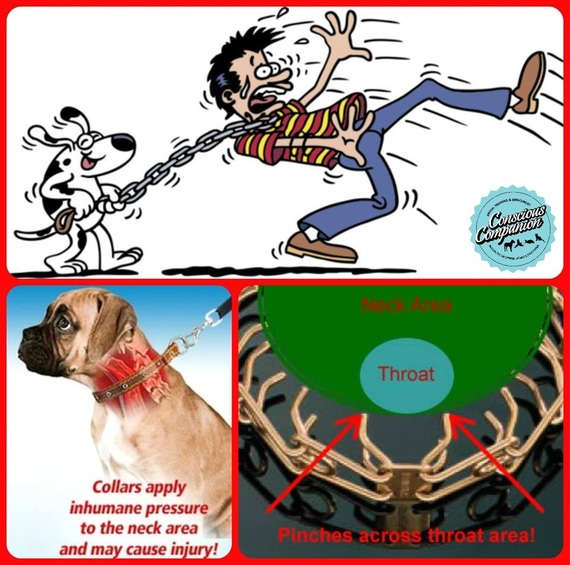You can instill fear in your kids and get them to mind, but they won't function better in the world and your relationship will suffer greatly. ~ Dr. Ian Dunbar
“No matter how those who use them advocate how its just ‘a little tickle’ and that they only ever use them ‘at their lowest setting’, the fact remains that they cause discomfort and fear in the dog wearing the collar, that is how they work. That is their intended purpose. At higher settings discomfort becomes pain. Dogs who are trained in such a way end up very confused as to what’s expected of them, and are in a constant state of fear. And a fearful dog is much more likely to bite at any given time than a confident happy dog."
News Flash: Punishment Is Outdated.
Force-Free Is The Way to Be!
Watch: "The Heavy Hand Myth - You Don't Need Fear & Pain to Train Dogs"
Training Truth: "Punishment is the least desirable tool for changing behavior."
Dominance Debunked!
- In dog training there are two schools of thought: domination techniques vs. positive training methods. Click here to see a discussion on why using positive, reward based methods is the most effective way of training.
- Beyond the Dominance Paradigm by Patricia McConnell, Ph.D.
- The Dog Whisperer Controversy by Lisa Mullinax, CPDT
- He Ought to Call Himself the Dog Screamer by Steve Dale
Training Truth: "The use of electrical stimulation, or “shock” or “e-collars,” to train and/or modify the behavior of animals is not necessary for effective behavior modification or training and damaging to the animal. ~ Pet Professional Guild
Choke, prong and shock collars can irreversibly damage your dog. Learn why these collars cause hypothyroidism and other health problems:
Training Truth: The degree of force used by a trainer is inversely proportional to the trainers level of competence.
- Leah Roberts
Lead them. Don't choke them.
I invite you to do a little test:
1. Open your hands with your thumbs touching each other. Place the thumbs at the base of the throat and with the fingers pointing back and surrounding the neck.
2. Now, take a deep breath, squeeze and pull back with all your force keeping your thumbs connected.
3. This is how many dogs feel when they are on the leash and collar and they are pulling.
If you are still keen to continue with this experiment, put a choke chain around your neck, attach it to a leash, and ask a friend to pull and jerk on it periodically. Welcome to the dog world!
1. Open your hands with your thumbs touching each other. Place the thumbs at the base of the throat and with the fingers pointing back and surrounding the neck.
2. Now, take a deep breath, squeeze and pull back with all your force keeping your thumbs connected.
3. This is how many dogs feel when they are on the leash and collar and they are pulling.
If you are still keen to continue with this experiment, put a choke chain around your neck, attach it to a leash, and ask a friend to pull and jerk on it periodically. Welcome to the dog world!
Training Truth: Animals trained using aversive (physical punishment) methods were 15 times more likely to exhibit symptoms of stress than those trained using "positive" techniques. Training dogs with positive and humane principles was more effective and caused less stress and anxiety than training a dog using aversives such as physical punishment and equipment such as shock, choke or prong collars.



